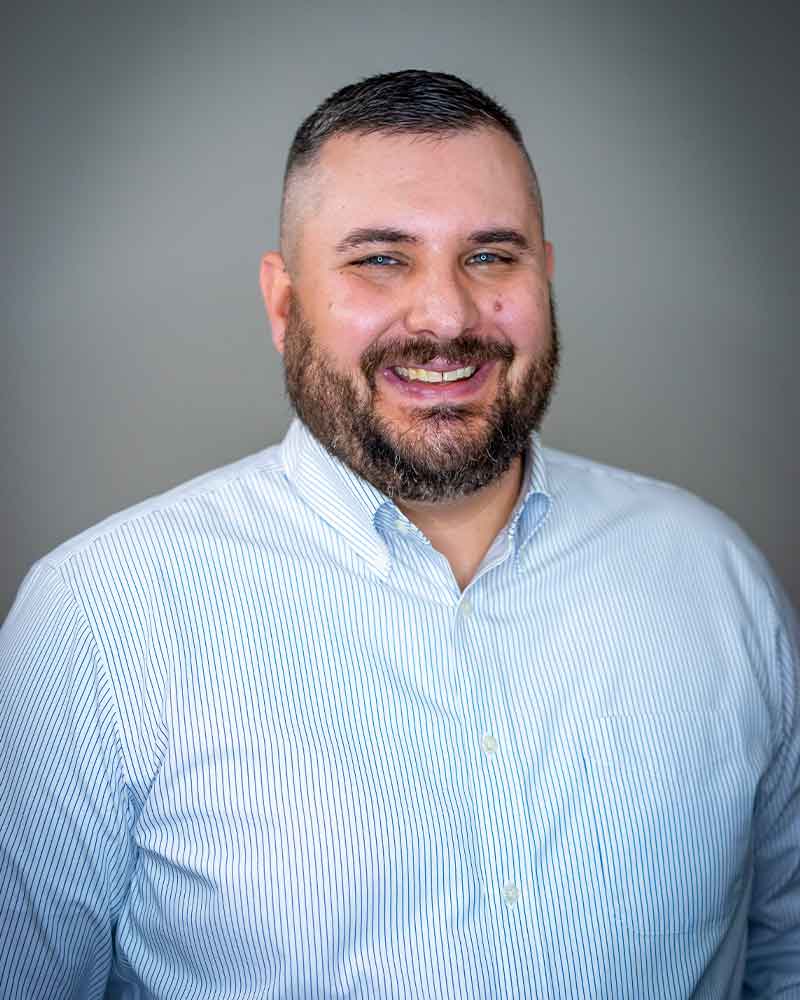5 Questions with Matthew Powell, Founder of Autism Career Training (ACT) and Trevecca Graduate
| Alumni
 Since his teen years, Matthew Powell felt called to the field of education. He completed his Bachelor of Science in special education from Trevecca and eventually his master’s in educational leadership before teaching at several Middle Tennessee high schools.
Since his teen years, Matthew Powell felt called to the field of education. He completed his Bachelor of Science in special education from Trevecca and eventually his master’s in educational leadership before teaching at several Middle Tennessee high schools.
While working in special ed, it became clear to Powell that his students needed services that could bridge the gap between what a traditional school offers and the skills adults with disabilities need in a vocational setting. To address this, Powell partnered with Karen Blake, the founder of the Autism Foundation of Tennessee, to launch Autism Career Training (ACT) in 2020. This new organization—the first of its kind in Middle Tennessee—provides training for young adults with autism who are transitioning to a work environment after high school.
What drew you to education?
One afternoon in high school during dismissal, I noticed a young man with special needs who was lying on the ground, refusing to budge. Apparently he’d been struggling every day to get on the bus. He would just lay down on the floor. For whatever reason, getting on the bus was a trigger for him.
I felt prompted to help. I walked over and started talking with him. He responded to me. I helped him get up and onto the bus. It was the start of a mentoring relationship between us that lasted throughout high school. It also influenced my future. That young man is the reason I got involved in special education. I saw how I could make a difference.
What kind of services does the Autism Career Training center offer?
A young adult with autism—who we describe as a trainee—can attend the center two to five days a week to gain pre-vocational employment skills. These often include sensory, social and communication skills necessary for a job environment. We take a look at what kind of accommodations our trainees most need and then help them work to gain independent living skills. It could be cooking, doing laundry, making their bed or learning how to socialize or communicate on a new level.
How have you seen the training make a difference?
We’ve helped trainees get jobs and get promoted. One of our young adults recently got a job at a car dealership. Another was working at Publix as a bagger, and we worked to help expand his role there so he could take on more responsibilities.
We’ve also seen how the quality of life can improve for an entire family when we focus on certain skills. One family came to our center wanting their son to be able to remain seated the entire time they ate together at a restaurant. Previously this young man wanted to get up and move around immediately after he finished eating. After working with him for some time, we saw phenomenal results. His sister got married several months ago and the trainee was able to sit through the entire rehearsal dinner and the reception. It meant so much to his family.
What do you wish more people understood about autism?
One of the biggest misconceptions is that everyone with the diagnosis has the same set of characteristics. In reality, they are vastly different and have different strengths. Our goal is to develop those strengths in order to help our trainees be able to make a difference in their community. It’s wonderful to see how far they can go. We’ve hired a passionate group of staff members who love our young adults and want what’s best for them. It’s transformative for our trainees to be part of a place where they feel like they belong and people understand and support them.
How did your time at Trevecca impact your career?
Andrew Burnham was one of my education professors who became a friend and lifelong mentor to me. We built a relationship through my classes and he was always someone I could call with professional questions or concerns. When we started ACT, we decided we needed someone to help us write curriculum for our programs. Dr. Burnham was the perfect fit. He became a consultant for the center, and our mentorship turned into a professional relationship. I talk with him at least once a week. It’s become a full-circle life experience and I’m incredibly grateful for his expertise and support.
